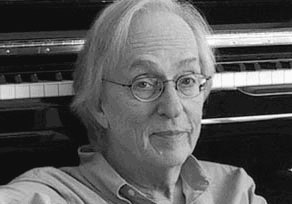 As a preliminary, I have to say that the chance of this counterfactual ever happening—of me ever being in the vicinity of a desert island is not just remote, it’s unthinkable. I’m too much of a city boy for that.
As a preliminary, I have to say that the chance of this counterfactual ever happening—of me ever being in the vicinity of a desert island is not just remote, it’s unthinkable. I’m too much of a city boy for that.
If you could only have four books on you island, what would you take?
I’m on this imaginary desert island and I can only bring four books with me. Given that constraint, I’d choose, first of all, the compendium of Everett C. Hughes’ papers, The Sociological Eye. It contains pretty much all of his writing except for his magnificent pioneering (though not generally incorporated in the history of that field) study of industrialization, French Canada in Transition. This book is a model of how to do and report research on a topic of indisputably major importance. The theory of it is contained less in its covers than in a later essay called “Queries Concerning Industry and Society Growing Out of the Study of Ethnic Relations in Industry.” The compendium also contains such classics as “Good People and Dirty Work,” “Bastard Institutions,” and “Dilemmas and Contradictions of Status.”
Then I’d want the three volumes that collect the essays of Robert E. Park, contained in three volumes published in the 1950s, very much worth reading Just, for instance, for the classic piece that set the agenda for urban studies, “The City as a Human Laboratory,’ not to mention the essay on the marginal man, etc., etc.
I’d include Thomas Kuhn’s The Structure of Scientific Revolutions because you get two for one with it: a magnificently profound analysis of what it means to do science, emphasizing how collective that activity really is, and simultaneously all the philosophy of science and methodology you’ll ever need.
Finally, I’d want one good piece of field research and, right now, I can’t choose between William Foote Whyte’s Street Corner Society, Deep South by a collective that included Mary and Burleigh Gardner, St. Clair Drake, and Allison and Elizabeth Davis, and the collective effort summarized in Horace Cayton and St. Clair Drake’s massive Black Metropolis.
I’d also mention some runner-so placed because I doubt that any reader of this would take seriously any book that wasn’t in the English language. For the brave who would dare beyond that I’ll confess that I might take Raymonde Moulin’s Le marché de la peinture en France and Bruno Latour’s Science in Action.
(This is the place for a short sermon you will have to imagine that exhorts you to actually read these books, rather than just repeating things you have heard about them, a lamentable practice that has become very widespread. Yes, I am an old crank.)
Ok, so you can also take two novels, what would they be?
The two novels would probably be ones that I’ve loved forever and that means they would be American classics. The ones I’d prefer would be books like Mark Twain’s Huckleberry Finn or Scott Fitzgerald’s The Great Gatsby, but also (not to be completlehy nationalistic) maybe one of Georges Simenon’s books about the detective he invented, Jules Maigret.
What four pieces of music would you take?
Four pieces of music. Hmm. Bartok’s “Concerto for Orchestra,” for sure. Some good piano player playing Bach Preludes and Fugues for Keyboard. A collection of solo pieces by some good tenor saxophonist like Lester Young, maybe the CD that has all his great solos with the Count Basie band, classics like “Tickle-Toe” and “Laughing at Life,” or maybe Stan Getz’ record that brought the great Brazilian invention of bossa nova to the rest of the world.
And finally, what luxury item would you take?
A luxury item. That’s a hard one. Can I get back to you on that?

